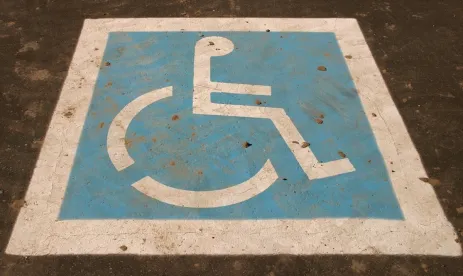The Supreme Court of the United States, on April 28, 2022, held that emotional distress damages are not available for private discrimination claims under the federal Rehabilitation Act of 1973 and the Affordable Care Act (ACA).
The high court ruled 6-3 in Cummings v. Premier Rehab Keller PLLC in favor of a rehabilitation provider that had faced discrimination claims from an individual with a disability under implied causes of action in the Rehabilitation Act and ACA. The ACA and the Rehabilitation Act prohibit healthcare companies and companies receiving federal financial assistance, respectively, from discriminating on the basis of protected characteristics, including race, sex, disability, and age.
Jane Cummings, who is deaf and legally blind, alleged that Premier Rehab Keller PLLC discriminated against her based on a disability after the rehab center refused her request for an American Sign Language (ASL) interpreter at her physical therapy sessions. The rehab center allegedly told Cummings that her therapist could communicate with her in other ways. Premier Rehab is subject to the Rehabilitation Act because it receives reimbursement through Medicare and Medicaid for the provision of some services and subject to the ACA as a healthcare provider.
The high court said that based on its 2002 decision in Barnes v. Gorman, statutes prohibiting discrimination passed under the U.S. Constitution’s spending clause, like the Rehabilitation Act and the ACA, create implied private causes of action, though remedies available for such claims are limited. In the Barnes case, the court held that punitive damages are not available for private claims under the Rehabilitation Act and Title II of the Americans with Disabilities Act of 1990 (ADA).
In an opinion by Chief Justice John Roberts, the high court reasoned that the available remedies in such cases turn on the contractual relationship created by the spending laws, in which an offer of federal financial assistance is conditioned on a promise not to discriminate. Since emotional distress damages are not generally available in breach of contract claims, it follows that they are not available under the Rehabilitation Act and the ACA, the high court said.
Cummings had argued that emotional distress damages are available because such damages are recoverable in certain breach of contract claims where a contract breach is likely to cause a severe emotional disturbance. The sort of discrimination claim in this case, Cummings contended, is particularly likely to cause such an emotional disturbance.
However, the high court said the emotional distress damages in breach of contract cases remains the exception, rather than the rule. Therefore, companies receiving money under the ACA and Rehabilitation Act are not on notice that they could face such damages in exchange for receiving federal funds, the high court said.
Justice Brett Kavanaugh filed a concurring opinion, which Justice Neil Gorsuch signed, that sided against emotional distress damages but called the breach of contract analogy an “imperfect way to determine the remedies.” He suggested that courts refrain from expanding implied causes of action or available remedies under the relevant statutes on separation of powers grounds.
Key Takeaways
The Supreme Court’s holding limits the type of damages that are recoverable in private causes of action for discrimination under the ACA and the Rehabilitation Act against healthcare companies and companies receiving federal financial assistance, respectively, specifically blocking emotional distress damages. Other remedies, such as injunctive relief, economic damages and attorneys’ fees, remain available under these laws. Even though the case limited the damages recoverable, it serves as an important reminder that ASL interpreters are often required under these laws, particularly in healthcare settings. The case also serves to remind that Title III of the ADA is not the only law protecting persons with disabilities and the Rehabilitation Act and the ACA have both additional and different requirements than those under Title III.




 />i
/>i
